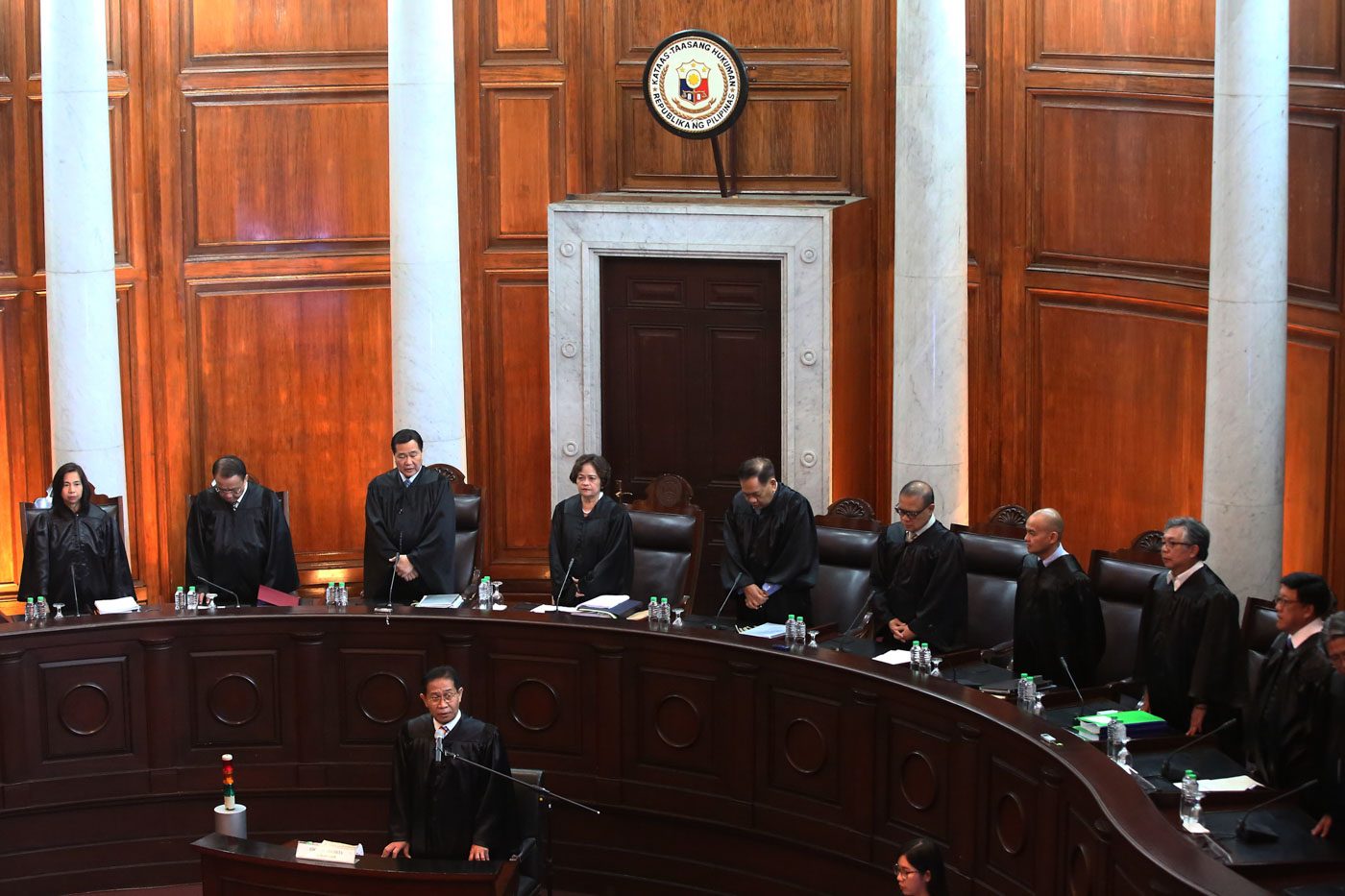SUMMARY
This is AI generated summarization, which may have errors. For context, always refer to the full article.

MANILA, Philippines – What’s the importance of the Rome Statute to the ordinary Filipino?
Replying to this question by Supreme Court Associate Justice Benjamin Caguioa during oral arguments on Tuesday, September 4, on the withdrawal of the Philippines from the International Criminal Court (ICC), counsel for senator-petitioners Barry Gutierrez said it provides a “safety mechanism” for Filipinos who want to seek redress of their grievances.
This is crucial in a situation where domestic courts are “unable or unwilling to actually provide justice to victims of these serious crimes enumerated in the ICC.” Filipinos, Gutierrez said, would have an “additional recourse to a standing international court” which is the ICC.
Lawyer Romel Bagares, lead counsel of co-petitioner Philippine Coalition for the International Criminal Court (PCICC), added that withdrawal from the ICC will mean loss of any international recourse when there is “inaction on the part of our courts.”
Caguioa said this could apply to a situation in the future where a “despot, an out-and-out dictator” will actually close down Philippine courts.
Membership in the ICC will allow ordinary Filipinos seeking redress against the abuses of a dictator to go to it.
The Philippines, however, transmitted its notice of withdrawal to the United Nations last March, 17, 2018. Withdrawal officially becomes effective after one year, or in March 2019.
Once the withdrawal from the ICC is complete, Filipinos will lose that direct remedy.
This is the “personal injury” that petitioners and ordinary Filipinos alike will suffer, Caguioa pointed out during his interpellation.
False assumptions
Associate Justice Marvic Leonen however contested this, pointing out that it is a false assumption to believe that international bodies will do better than national bodies.
“That international bodies are always benign, that they will always do right, that there is no politics in international bodies – that may be an assumption. That’s a wrong assumption…To strengthen the court system, to strengthen our domestic system, to strengthen the independence of our courts vis-à-vis the executive, for the courts to defer when it is a political matter rather than become a judicial dictator, rather than rely always on foreigners from a colonial mentality mode, I think that would be a better assumption,” Leonen told Gutierrez.
It would be better to strengthen domestic institutions, Leonen pointed out during his interpellation, so that citizens can get “immediate recourse” from the courts, rather than tell them that our courts are “useless and therefore you will always have to rely on an international body so that there is no impunity.”
Unwillingness on the part of domestic courts to act on grievances can only be established when it is so “egregious, so ubiquitous, so obvious that it can be taken on by the international community.”
Leonen said courts should be seen as acquitting defenders of drugs or not issuing writs of amparo or habeas corpus. This is, however, not the case as complaints are actually pending both in the Supreme Court itself and other lower courts.
Oral arguments will continue on Tuesday, September 18, Chief Justice Teresita Leonardo De Castro said. – Rappler.com
Read related stories:
Add a comment
How does this make you feel?
There are no comments yet. Add your comment to start the conversation.